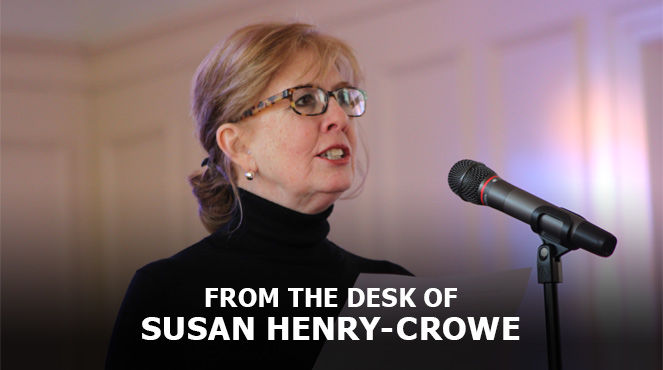Celebrating African American Heritage Month
Frederick Douglass: His Influence on Civil Rights, Voting Rights and Women's Rights is a Light from The Past and a Beacon for The Future

“Power concedes nothing without a demand. It never did and it never will. Find out just what any people will quietly submit to and you have found out the exact measure of injustice and wrong which will be imposed upon them.” – Frederick Douglas
During his extraordinary life, Frederick Douglas rose to prominence as one of the most prolific, most recognizable, and most influential voices for justice in American history. Born a slave in Eastern Maryland 204 years ago, he is renowned not just for his rise from slavery to the highest levels of American society, but for his well-documented accomplishments to expose injustice and remedy its harms.
So much of his unbelievable life and teachings echo down through American history as a prelude to the scores of civil rights activists who intentionally followed his example and advanced his torch of social justice.
In his 77 years, (1818 - 1895) Douglass learned to read and write without a formal education. He escaped from slavery and became a licensed African Methodist Episcopal Zion Minister. A prolific reader, he founded and edited newspapers fueling the abolitionist movement. Douglass delivered thousands of speeches to address social and racial travesties. He published three autobiographies. He met with President Abraham Lincoln to lobby for emancipation and became a trusted advisor and friend. He championed the cause of African American civil and political equality before and after the Civil War, which earned him his greatest notoriety.
Yet there’s a side of Douglass that’s not often remembered or celebrated: his unwavering support for women’s rights. In April 1888, Douglass delivered a speech before the International Council of Women, in Washington D.C. advocating for women’s rights. In that speech, he recalled being one of the few men present at the July,1848 Pioneer Woman’s Rights Convention held at Seneca Falls, New York when Elizabeth Cady Stanton helped launch the woman’s suffrage movement. “All good causes are mutually helpful,” proclaimed Douglass. “The benefits accruing from this movement for the equal rights of women are not confined or limited to women only. They will be shared by every effort to promote the progress and welfare of mankind everywhere and in all ages.”
A gifted orator, respected writer and famous abolitionist, Frederick Douglass was appointed U.S. Marshal of the District of Columbia (Washington D.C.) by President Rutherford B. Hayes on April 21, 1877. This made him the first African American confirmed for a Presidential appointment by the U.S. Senate. He also was later appointed Recorder of Deeds for the District of Columbia, a government office to maintain public records and documents. In 1889 President Benjamin Harrison appointed him U.S. Minister to Haiti. His appointments to such positions in the government were the highest posts an African American was appointed to in19th century America.
Toward the end of his life, while living in Washington D.C., he continued to fight tirelessly for racial and political equality. After all his work, he witnessed the fall of reconstruction and the tragic onset of Jim Crow, the oppressive system of racial segregation, disenfranchisement, and violence before he died in 1895 (a year prior to the notorious Supreme Court decision Plessy v. Ferguson, which upheld segregation under the “separate but equal” doctrine).
Remembering the legacy of Frederick Douglass, one can only imagine the brutal and oppressive conditions he lived through – and yet his extraordinary accomplishments and evidence of his undying hope to do what was right continue to inspire us after more than 200 years. His remarkable life is a reminder that no matter the circumstances or extreme difficulties we can “unite with anybody to do good,” as Douglass wrote. His social justice meant it’s on us to speak up for the truth even when it’s not popular. It’s on us to challenge the belief and power systems that are inconsistent with biblical teachings and our social principles.
Now and in days to come, the voice of Frederick Douglass bellows loud and true as he said “Whatever the future may have in store for us, one thing is certain – this new revolution in human thought will never go backward. When a great truth once gets abroad in the world, no power on earth can imprison it, or prescribe its limits or suppress it.”